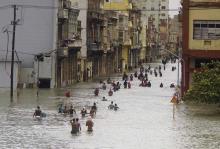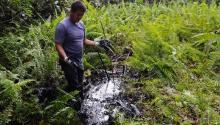A group of Indigenous citizens from Canada is visiting the Amazon rainforest of Ecuador to document environmental damage reportedly committed by multinational oil giant Chevron.
A major French bank has joined a growing group of international businesses, schools and financial institutions that have pledged to go fossil fuel-free with their investments as the world collectively strives to avoid climate change disaster.





